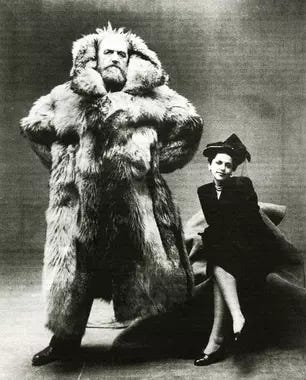Tito Perdue: The Right's Laureate
Literary fiction still has the odd holdout, is Tito Perdue ours?
Substack is a wonderful platform for readers and writers, and one of the places where fiction can still be judged on its own merits. I have seen some excellent reviews of books, most recently Alexandru Constantin’s which is what prompted me to spread the word about Tito Perdue a little wider.
Tito Perdue has very much had a literary career of two halves. Lee introduced the central character of his oeuvre and was certainly his most critically successful and mainstream novel. Despite publishing a couple of follow ups through a main stream publisher his work disappeared for several years before coming back into print through alternative or right wing publishers. One can’t help but feel the unapologetic disdain for modernity, and the love of the best of the past along with his status as a retired, white and male writer made him quite uninteresting to the big commercial publishers of today. It has gone to the point that little of his output since the 90s has cracked the conventional publishing world and there have been several attempts to delete his wikipedia page on the grounds that the award winning and nationally reviewed author isn’t “notable”.
His novels are written very much from his own familial background in Alabama and the love of the Old South is a constant theme throughout. The bulk of his novels focus on an older Lee Pefley, an aged and misanthropic autodidact who is perhaps a stand in for Perdue himself in the way of many literary characters - both have a dislike of modern ugliness and returned to their beloved Alabama later in life. Various novels look at episodes through Lee’s life - more in his later years but also his earlier career and indeed the lives of his ancestors.
The novels make no apology for being written in a purposefully complex way - Purdue clearly has a love of language and vocabulary and regularly references a variety of ancient and renaissance texts, esoteric concepts and books written in a variety of dead languages. There’s also a strong focus on beauty, be it in a love of landscape, Lee’s wife’s innocent femininity or antique postage stamps. The writer uses colours throughout to demonstrate this aesthetic principle - most notably shades of yellow and blue. The books also become amusingly self referential, such as when Lee finds a beautifully bound copy of a book of Perdue’s - bibliophilia is a theme throughout.
I’ve read a fair number of Purdue’s books and whilst Lee is his most successful I’d recommend starting with a different one. Personally I found Morning Crafts to provide most of the story of Lee’s origin and unique sensibilities
“Materials for Future Historians” is another I can recommend, looking at Lee as a teacher and former of another mind and basically plays out as an erudite and aesthetic riff on Guillame Faye’s Archeofuturism or perhaps the more mainstream and popular “Adjustment Day” of Chuck Palahniuk (itself a parody of the kind of end of the world as we know it genre).
My personal favourite novel of Purdue’s is Philip. It stars a contemporary of Lee’s who works in New York and who observes and catalogues its modern horrors. It’s an atmospheric novel with themes of authenticity, beauty and decay throughout.
If you love language and literature and your views are outside the box that modern publishing promotes then Tito Perdue is a writer who you should read. I’ve read reviews that say you love novels where you can detect elements of your own character on the page - so if anti-modernist, aesthete, bibliophile, historian, linguist, world weary and man-apart could describe you then you’ll be in your element.



